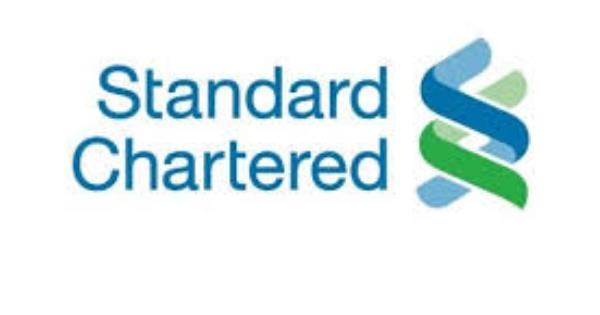E-Financial
Standard Chartered Unveils Premium Banking In Nigeria

Standard Chartered Bank (Nigeria) has launched its Premium Banking segment in Nigeria.
The segment is designed to cater to the financial needs of the Emerging Affluent providing a wide variety of services and solutions such as end to end digital onboarding, online investment options and seamless bills payment to clients.

It caters to clients between the ages of 25 and 45 years old who are typically graduates, start-up entrepreneurs, SMEs, new working professionals etc and are individuals who are technologically/digitally inclined requiring minimal personal contact.
Speaking on the offering, David Idoru, Head of Retail Banking said, “At Standard Chartered Bank, our Clients remain at the centre of everything that we do, which clearly shows in how we develop business segments, products for investments, the markets where we operate in, the entire process of how we deliver value to our clients through engagement platforms such as the SC Mobile app.
As a Bank, we believe in building long term relationships with our clients and having the Premium Banking segment enables us to do so more strategically with our clients within this age bracket. This is one of the many ways we continue to demonstrate and reiterate to our clients that we are Here for good.’’
The Premium Segment addresses specific needs for its client’s such as buying a first home, starting a family, children education funds, travel and lifestyle improvement etc with access to dedicated premium executives for banking related queries and Investment advisors for Investment related queries.
David added: ‘’As a Bank today, we are clearly also focused on driving Digital banking across all segments from a convenience perspective which makes delivering value to our clients easier, faster, secured and a lot more efficient.
This basically means that our clients including our Premium Banking clients can start and end their journey of subscribing to any of our investment products strictly on their mobile devices and this has changed how we deliver value and investment products to our clients.
Standard Chartered Bank announced the launch of its Digital Bank in Nigeria in December 2019 with the SC Mobile 2.0 app.
The Digital Bank offers savings accounts, current accounts, fixed deposits (with the option of joint accounts) along with Lending and Wealth Management solutions.
For both existing and new to bank clients, various benefits to be enjoyed on the app include Zero charge on all interbank transfers; Zero charge on SMS Notification, Zero charge on ATM withdrawals, Performing funds transfer without adding beneficiaries and Generating a soft token for all transactions, Free bank card delivery nationwide and account management and service request.
E-Financial
Nigerian Banks End Years of Embargo, Resume Intl Transactions on Naira Cards

Nigerian banks have resumed international transactions on naira-denominated debit cards, marking a significant shift in banking operations for customers who rely on foreign payments.

This is coming nearly three years of suspension.
United Bank for Africa (UBA) and Wema Bank, in separate communications to their customers, announced the restoration of international payment services on their naira cards.
In a notice to its customers, UBA said the reactivation of international transactions on its premium naira cards aligns with its commitment to delivering improved and seamless banking experiences.
“We are pleased to inform you that all UBA Premium Naira Cards, including Gold, Platinum, and World variants, are now enabled for international transactions,” the bank stated.
“This means you can now use your Premium Naira Card for global payments — including online shopping, POS, and ATM transactions — with ease and flexibility. If you haven’t used your card recently, now is a great time to rediscover the convenience and prestige that comes with being a UBA premium cardholder.”
Similarly, Wema Bank announced that its customers can now make dollar payments on international platforms using their naira Mastercards.
“Your Wema Naira Mastercard just went global!” the bank said. “Now you can pay in dollars on all your favourite international platforms — Amazon, eBay, AliExpress, Netflix, Spotify, YouTube.”
The development marks a major relief for Nigerian customers who have had to rely on dollar cards or alternative payment methods since most banks suspended international usage of naira cards in 2021 due to foreign exchange scarcity.
E-Financial
Flutterwave Secures 20 more US Money Transmitter Licences

Flutterwave, Africa’s leading payments technology company, today announced the relaunch of its flagship remittance solution, Send App, across U.S. states following its newly acquired Money Transmitter Licences (MTLs).

This comes after Flutterwave secured 20 additional MTLs in the U.S., adding to the 14 licenses the brand has held since 2023.
Altogether, this achievement raises Flutterwave’s total number of direct licenses to 34, allowing the company to operate across many U.S. states and territories without partners or intermediaries.
Users in the U.S. can now send money to Nigeria, Ghana and Egypt, unlocking new remittance corridors that were previously unavailable.
Alongside this expansion, the onboarding process has been streamlined with a quick ID check, making it faster and easier for new users to get started.
Additional improvements include optimised payment support for US-issued Visa and Discover cards, enhanced security measures to safeguard transactions and maintain compliance, and improved in-app flows for a simpler, more efficient sending experience.
This return also highlights Flutterwave’s commitment to delivering a seamless, secure, and regulatory-compliant user experience for all Send App customers in the U.S. Users can now send money from DC, Georgia, Maryland, North Carolina, Michigan, South Carolina, Tennessee.
Other U.S. states and territories where Send App by Flutterwave supports outward remittances include Alaska, Arizona, Arkansas, Delaware, Idaho, Illinois, Indiana, Iowa, Louisiana, Maine, Minnesota, Mississippi, and Missouri, Nebraska, New Hampshire, New Mexico, North Dakota, Oklahoma, Oregon, Puerto Rico, Rhode Island, South Dakota, Utah, Washington, West Virginia, Wisconsin, and Wyoming.
Commenting on the relaunch, Olugbenga “GB” Agboola, Flutterwave Founder and CEO, said, “By expanding our reach and enhancing our services, we are empowering millions of Africans in the U.S. to maintain strong financial ties with their home countries, support their families, and contribute to economic development across the continent. Additionally, we are staying true to our core mission of bridging Africa with the global economy and vice versa.”
Earlier this year, Flutterwave integrated Swap into Send App for seamless FX transactions and strengthened its services in Ghana by securing approval for inward remittance from the Bank of Ghana.
E-Financial
Court Affirms NIBSS Authority to Manage BVN

Federal High Court in Abuja on Friday affirmed the authority of the Nigeria Inter-Bank Settlement System (NIBSS), to manage the Bank Verification Number (BVN), database across the country, in line with the Central Bank of Nigeria (CBN), Act and other relevant banking laws.

This is according to a judgment delivered by Justice James Omotosho on Friday.
Wolemi Esan, senior advocate of Nigeria, NIBSS’s counsel, and Kofo Abdulsalam-Alada, lead counsel for the CBN, among others, had sought a restraining order to prevent any institution in Nigeria from challenging the agency’s statutory authority to maintain and manage the BVN database.
This comes as NIBSS had alleged that Digital Rights Lawyers Initiative filed multiple suits, either directly or through proxies, challenging its authority to manage the BVN database and claiming that such management violates constitutional privacy rights.
However, Justice Omotosho, delivering his judgment, said the BVN does not infringe on the constitutional right to privacy.
“The initiative does not infringe on the constitutional right to privacy but rather serves as a necessary tool for safeguarding public interest and enhancing financial security.
“NIBSS has the power to manage the BVN,” the judge said, citing relevant CBN laws.
“The court grants the reliefs of NIBSS as prayed,” he stated.

 Telecom2 days ago
Telecom2 days agoMTN Nigeria Debuts Game-Changing CPaaS Platform at NextNow Forum

 Telecom3 days ago
Telecom3 days agoNCC Approves MTN, 9Mobile Roaming Collaboration Deal

 E-Financial2 days ago
E-Financial2 days agoNAICOM Issues New Licenses to SanlamAllianz Life, General Insurance

 News2 days ago
News2 days agoAMCON Confirms ₦100Bn Sale of Ibadan DisCo Amid Legal Disputes

 E-Financial2 days ago
E-Financial2 days agoGTCO to Become First Nigerian Bank to List on London Stock Exchange

 E-Business2 days ago
E-Business2 days agoDomain of Deception as Attackers Deploy Spyware Under Guise of Legal Threats

 E-Financial3 days ago
E-Financial3 days agoWorld Bank Approves Extra $65m for Nigeria’s SPESSE

 E-Financial3 days ago
E-Financial3 days agoEcobank Taps Google Cloud to Deepen Financial Inclusion




























